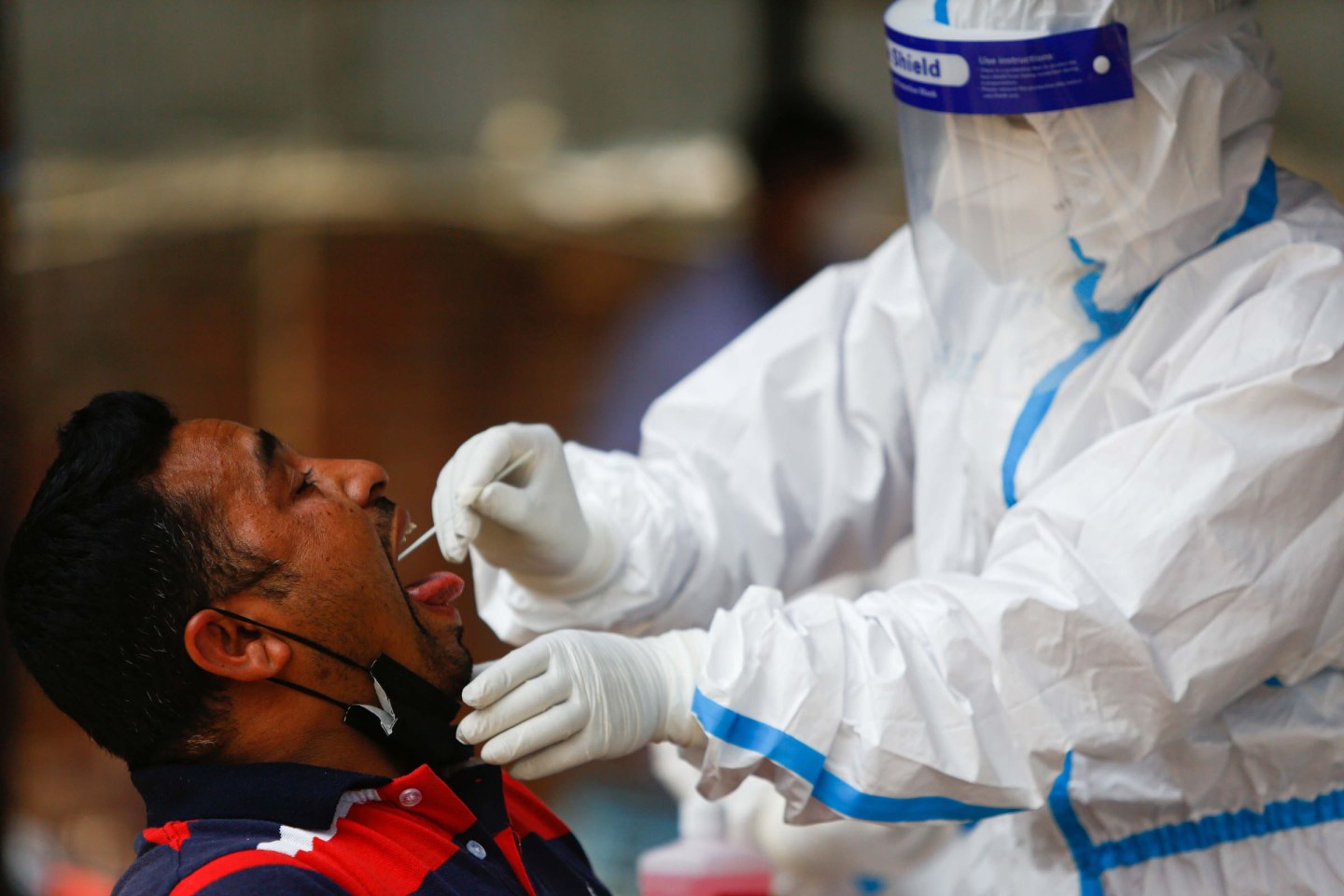0%

A man takes a polymerase chain reaction (PCR) test for COVID-19 at a vegetable market in Kathmandu, Nepal on May 14, 2020. Nepal's COVID-19 tally jumped to 249 after six new cases were confirmed on Thursday. (Xinhua/Sulav Shrestha)
KATHMANDU: The JN.1 sub-variant of COVID-19 has been officially identified in Nepal. This variant, which originated in the U.S. in September, has now been confirmed in more than 41 countries, including Nepal. Classified as a separate variant of interest (VOI) by the World Health Organization (WHO), JN.1 has rapidly spread globally, raising concerns about its impact.
Despite its increasing prevalence, the WHO currently assesses the additional public health risk posed by JN.1 as low at the global level. However, there is anticipation that this variant may contribute to a surge in SARS-CoV-2 cases, particularly in countries entering the winter season, and may interact with other viral and bacterial infections.
Key Characteristics of JN.1:
Effectiveness of Vaccines, Tests, and Treatments Against JN.1:
Vaccine Recommendations: WHO’s expert COVID-19 vaccine advisory group, in a statement on December 13, recommended continuing with the current XBB.1.5 vaccines, as they appear to offer some cross-protection against JN.1.